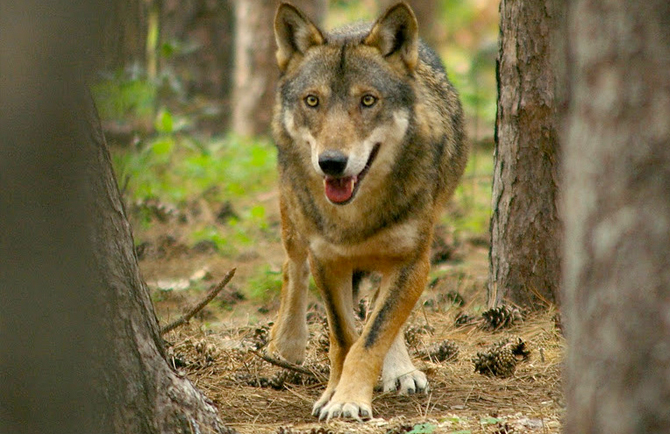Animali. Lupi e Ibridi tutelati dalla legge. Vero problema è la mancata applicazione della legge sul randagismo
-
in Brevi

In merito alle interrogazioni di Dellai e Sani (PD) contro i Lupi e gli "ibridi", presentata al ministro dell'Ambiente Galletti, l'Ente Nazionale Protezione Animali non può fare a meno di rimanere sorpreso da quanto si dichiara, a partire dal fatto che gli "ibridi" sarebbero privi di tutela giuridica.
«A questi esponenti politici vogliamo ricordare, poiché probabilmente è loro sfuggito, come gli "ibridi" fino alla quarta generazione siano considerati lupi a tutti gli effetti, dopodiché sono semplicemente cani che vanno gestiti secondo la legge 281/91. Ricordiamo, inoltre, che in Italia è in vigore la legge 189/2004 "Disposizioni concernenti il divieto di maltrattamento degli animali, nonché di impiego degli stessi in combattimenti clandestini o competizioni non autorizzate" che ha profondamente innovato il Codice Penale introducendo il titolo IX bis sui delitti per i reati perpetrati ai danni degli animali. Non risponde dunque a verità che gli ibridi animali non abbiano tutele giuridiche», dichiara l'Ente Nazionale Protezione Animali.
«Inoltre - prosegue l'associazione - per quanto riguarda eventuali danni attribuiti alla fauna selvatica, sarebbe davvero opportuno accertare se e quanti animali da allevamento siano stati effettivamente uccisi dai lupi, e sulla base di quali analisi condotte dagli istituti zooprofilattici; sarebbe inoltre accertare quante aggressioni siano attribuibili ai cani cosiddetti “inselvatichiti”, quei cani che si trovano in uno stato di totale abbandono, affamati e disperati, per responsabilità di pastori, cacciatori o di privati che se ne sono “liberati”. Oppure di cani che vengono lasciati vagare liberamente sul territorio, senza alcun controllo, senza microchip o senza sterilizzazione. Per affrontare la questione bisogna partire proprio dalla legge sul randagismo, la 281 del 1991, ,la cui mancanza di applicazione è oggi una imperdonabile irresponsabilità».
Ma l'Enpa si appella anche al Ministro dell'Ambiente e alla Conferenza delle Regioni in merito al cosiddetto "piano di conservazione del Lupo". «Per poter essere autorizzati dall'Unione Europea a "sparare" al Lupo, il che è avvenuto in altri paesi con risultati risibili dal momento che il nodo del problema è il randagismo come in parte l'interrogazione degli onorevoli Dellai e Sani conferma, bisogna presentare studi scientifici molto seri e motivati: la generica motivazione addotta dal tanto discusso e discutibile piano lupo, secondo la quale si dovrebbero impallinare i lupi per "diminuire il conflitto sociale tra allevatori e animali", anche come paradossale misura per prevenire il bracconaggio, è del tutto fuori luogo. L'Unione Europea e il mondo scientifico – conclude l'Enpa - sanno benissimo che le armi sono inutili e che sono ben più efficaci le misure di prevenzione del danno, a partire da una banalissima sorveglianza e protezione del gregge e degli animali: qualsiasi forma di abbattimento, come dimostrano 20 anni di stermini autorizzati a carico di molte specie non ha mai sortito effetto alcuno».
Redazione
______________________________________________________________________________________
Animals. Wolfs and hybrids protected by the law. Real problem is the lack of application of the law about strays
About the questions of Dallai and Sani (PD) against the Wolfs and "hybrids", presented to the Environment Minister Galletti, the National Animal Protection Organization can't do nothing but being surprised by how declared, starting from the fact that the "hybrids" are without juridical protection.
«To these politics representatives we want to remember, probably because they escaped,as the "hybrids" up to the fourth generation are considered wolfs to all effects, and after all they are simply dogs menaged by the law 281/91. We remember, furthermore, that in Italy is into force the law 189/2004 "Provisions concerning the ban of animal abuse, as well as the use of them in clandestine fights or not autorised competitions" that has deeply renovated the Penal Code introducing the title IX bis about crimes for the violations committed to the detriments of animals. So it's not true that hybrids animals have no juridical protection», declares the National Animal Protection Organization.
«Moreover – continues the association – about the possible demages to the wild fauna, it would be really appropriate to verifiy if and how many breeding animals have been actually killed by the wolfs, and on the base of which investigations made by the zooprophylactic institutes; it would be useful to verify how many aggressions are ascribeble to the so-called “feral” dogs, those dogs that live in a state of complete abandon, hungry and desperate, by sheperd responsability, hunters or privates that are then “cleared”.
Or dogs that are left free to roam on the territory, without any control, no microchip or sterilization. To efford the issue it's necessary to start just from the law about the strays, the 281 of 1991, whose lack of application is an unforgivable irresponsibility».
But the Enpa appeals also to the Environment Minister and to the Regions Conference about the so-called "plan of preservation of the Wolf". «To be authorised by the European Union to "shot" the Wolf, something that has happened in other countries with visible results since the problem knot is the strays as in part confirms the interrogation of the honourables Dellai and Sani, it's necessary to present very seriuos and motivated scientifics studies: the general motivation advanced by the much discussed and debatable plan wolf, according to which wolfs should be fired to " reduce the social conflict between breeders and animals", also as paradoxical mesure to warn the poaching, is totally inapposite.
The European Union and the scientific world – ends the Enpa – know really good that arms are useless and that prevention measures of damages are more efficients, starting from a common supervision and protection of herd and animals: any knocking down form, as 20 years of authorized exterminations at the expense of many species show, never had any effect».
Editorial staff